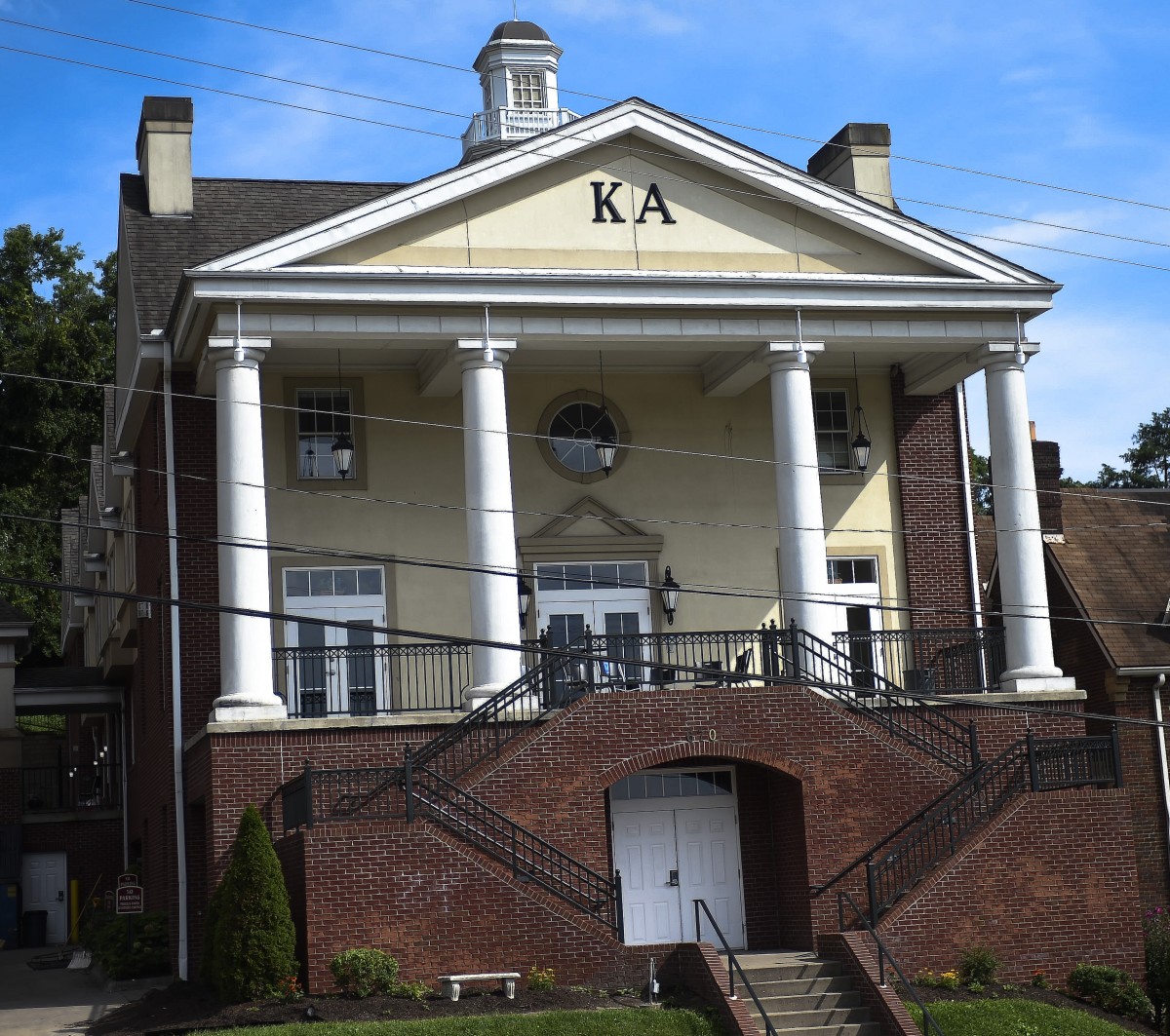WVU and five dissociating fraternities crossed swords Thursday afternoon.
The fraternities formally announced creation of an Independent Fraternity Council (IFC) in Morgantown and WVU banned them for at least 10 years.
The fraternities are Alpha Sigma Phi, Kappa Alpha Order, Phi Sigma Kappa, Sigma Chi and Theta Chi. (See accompanying story for the fraternities’ announcement and comments.)
For more on the new IFC, see https://www.dominionpost.com/2018/09/27/five-wvu-fraternities-form-independent-council-invite-others/
WVU, in a release, cited a letter from President Gordon Gee to the campus community: “I care deeply about every student on this campus,” he said. I am deeply concerned by the decision these chapters have made and can only hope that the chapter leadership has carefully considered the impact not being associated with the University will have on the chapter and its membership.”
“It is clear, and extremely unfortunate, that our students are being pressured by their national organizations to oppose deferred or delayed membership, which we believe is an important component to ensuring students have a firm academic foundation before joining fraternities,” Gee said.
“I believe these national organizations are more concerned about dollars than students’ lives,” Gee said. “As a proud member of a fraternity, I am personally saddened by the direction these organizations have taken.”
WVU said that the fraternities are primarily concerned with the ban on recruiting first-semester freshmen that began in 2015.
WVU sent letters to the local chapters of the dissociating fraternities and listed 11 consequences of the ban. Among them, WVU will:
— continually notify all students and parents that the chapter is not recognized by the university and strongly discourage students from joining.
— strongly encourage other recognized student organizations not to engage in social interactions with the chapter.
— say on its website that the chapter has “disassociated subject to ongoing conduct-related sanctions.”
— pursue appropriate violations of the university’s Student Conduct of Code against individual members of the chapter for recent or pending violations of the Code and University policies.
— prohibit chapter use of the WVU name or brands; from holding itself out as being associated or recognized by the university; from using university resources or facilities for programming or business purposes; from participating in Office of Fraternity & Sorority Life and Interfraternity Council programs; and from participating as a fraternity in any activity sponsored by a recognized student organization for recognized student organizations.
A university spokesman added that the ban also means if a chapter changes its mind during the term of the ban and wishes to come back to the WVU fold, it won’t be permitted.
WVU said eight fraternities remain in WVU’s Interfraternity Council: Alpha Gamma Rho, Lambda Chi Alpha, Phi Kappa Psi, Sigma Phi Epsilon, Alpha Epsilon Pi, Phi Delta Theta, Sigma Alpha Epsilon and Sigma Nu. The 14 sororities and historically African-American fraternities and sororities are not affected.
WVU offered some background to Thursday’s action. It said it began trying to change the fraternity culture on campus after the 2014 death of Nolan Burch, a freshman member of Kappa Sigma fraternity – which had just had its charter revoked by the national office and was not recognized by the university.
“The following two years showed some improvement, however in early 2017, the University became concerned over increasing reports of sexual assaults, drug use and alcohol violations,” WVU said.
Then, in February, WVU placed an immediate moratorium on all social and recruiting activities of the then-16 social and social-professional fraternities of the Interfraternity Council and initiated the Reaching the Summit review, which led to the suspension of Phi Gamma Delta, Phi Sigma Kappa, Pi Kappa Alpha and Sigma Alpha Mu. The national offices of Phi Gamma Delta, Pi Kappa Alpha and Sigma Alpha Mu also withdrew recognition.
Others, including Kappa Alpha Order, Phi Delta Theta, Sigma Alpha Epsilon, Sigma Chi and Theta Chi were given various restrictions, including limits on social activities and requirements for hazing and alcohol education.
In the letters to the local chapters, WVU specified issues that led to their sanctions. The Alpha Kappa Chapter of Alpha Sigma Phi was charged with hazing and agreed to be found responsible for assault and battery.
For the Alpha Kappa Chapter of Theta Chi, the Reaching the Summit working group found six violations of the Student Code of Conduct during the past three years, primarily dealing with social event polices and protocols.
The Mu Mu Chapter of Sigma Chi was also found responsible for six violations of the code, ranging from social event policies to hazing.
Phi Sigma Kappa was found responsible for 13 violations, including hazing, fights with another chapter and destruction of property.
And the Alpha Rho Chapter of Kappa Alpha Order was found responsible for seven violations, from violating social event policies to fights with another fraternity.
Matthew Richardson director of Fraternity and Sorority Life, said, “With the exception of one fraternity that was suspended for three years (Phi Sigma Kappa), the measures we were taking were educational development such as attending an anti-hazing program. They were not arduous or punitive.”
Gee said in his letter, “It is extremely disappointing to me that we have had to go down this path. As I have said many times before, I am an ardent supporter of fraternity life. … And our fraternities and sororities that are in good standing continue to exhibit leadership and influence. I look forward to working with them to create solutions that will shape the University for years to come.”




